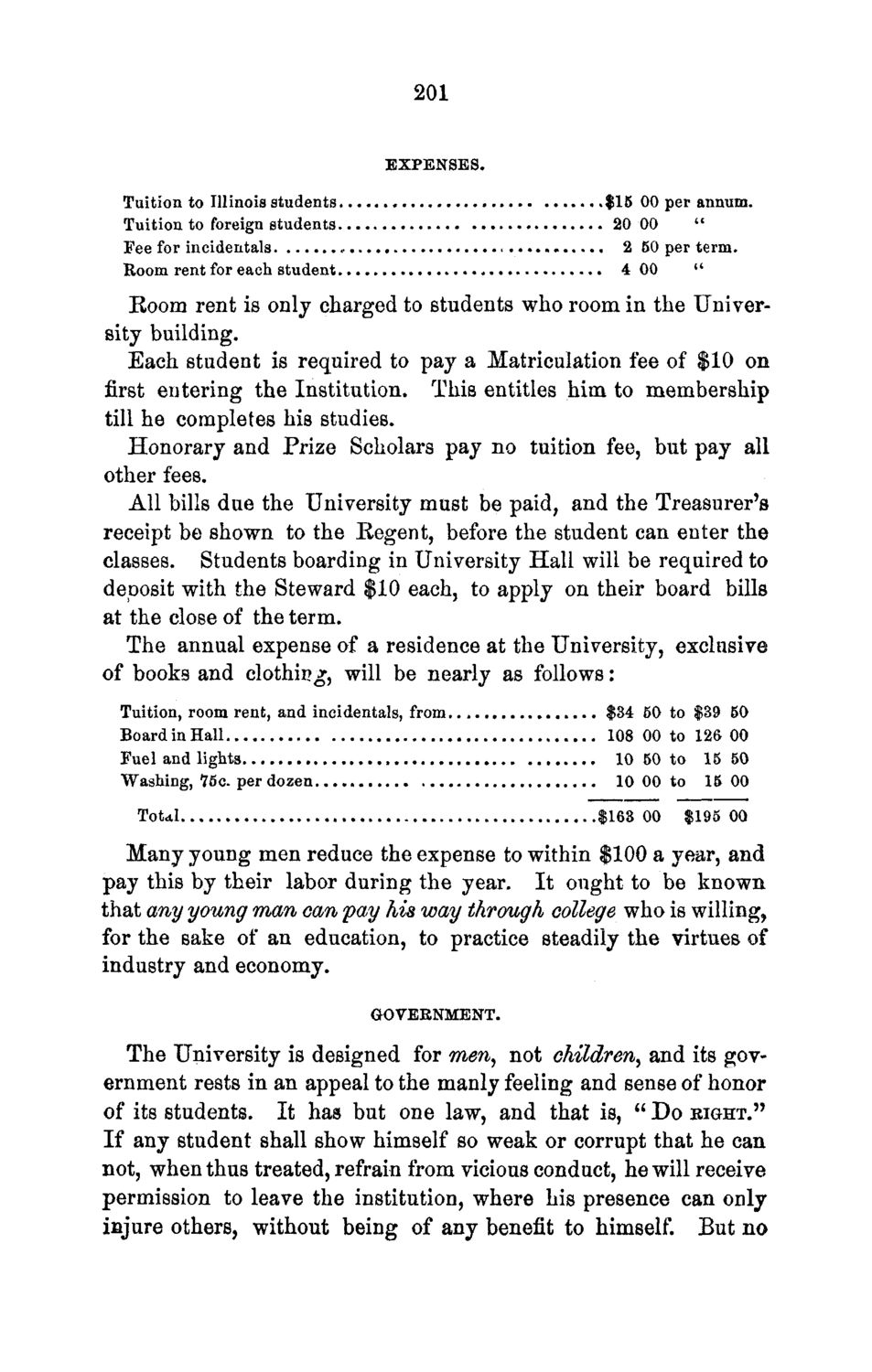| |
| |
Caption: Board of Trustees Minutes - 1868
This is a reduced-resolution page image for fast online browsing.

EXTRACTED TEXT FROM PAGE:
201 EXPENSES. Tuition to Illinois students Tuition to foreign students Fee for incidentals , Room rent for each student $15 20 2 4 00 per annum. 00 " 50 per term. 00 *' Room rent is only charged to students who room in the University building. Each student is required to pay a Matriculation fee of $10 on first entering the Institution. This entitles him to membership till he completes his studies. Honorary and Prize Scholars pay no tuition fee, but pay all other fees. All bills due the University must be paid, and the Treasurer's receipt be shown to the Regent, before the student can enter the classes. Students boarding in University Hall will be required to deposit with the Steward $10 each, to apply on their board bills at the close of the term. The annual expense of a residence at the University, exclusive of books and clothing, will be nearly as follows: Tuition, room rent, and incidentals, from Board in Hall Fuel and lights Washing, 15G. per dozen Total $34 108 10 10 50 00 50 00 to $39 50 to 126 00 to 15 50 to 15 00 $195 00 $163 00 Many young men reduce the expense to within $100 a year, and pay this by their labor during the year. It ought to be known that any young man can pay his way through college who is willing, for the sake of an education, to practice steadily the virtues of industry and economy. GOVERNMENT. The University is designed for men, not children, and its government rests in an appeal to the manly feeling and sense of honor of its students. It has but one law, and that is, " Do BIGHT." If any student shall show himself so weak or corrupt that he can not, when thus treated, refrain from vicious conduct, he will receive permission to leave the institution, where his presence can only injure others, without being of any benefit to himself. But no
| |